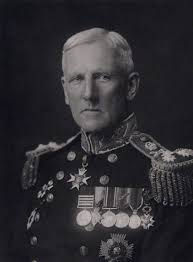How the Gallipoli campaign might have been avoided for £4M
- Shaun Lewis
- Apr 30, 2019
- 2 min read
We have recently commemorated ANZAC Day. In 1915, Australian and New Zealand soldiers participated in an expedition to capture the Gallipoli Peninsular so that the Dardanelles Strait would be open to allied navies to open a southern front and knock Turkey out of the First World War. It might have been avoided had a mere naval captain succeeded in his plan to bribe Turkey to sever its alliance with Germany.
Captain Reginald 'Blinker' Hall was the newly appointed Director of Naval Intelligence. Through his intelligence agents and intelligence gained by cracking Germany's signal codes, he deduced that the newly established alliance between Turkey and Germany was fragile. In January 1915, he instigated discussions with the Turkish Minister of the Interior to break off the alliance, hand over the German cruisers given to them as a gift the previous August and to clear all mines and open up the Dardanelles to allied shipping in support of the Russians in the Black Sea. A team of two British businessmen and a former diplomat were instructed to offer the bribe of £3M and given authority to increase the figure to £4M, if necessary. Hall took this action without any consultation with the Cabinet, but did keep Churchill informed, although not the price he was prepared to offer.
The negotiations took place over two months, using at one point the Turkish Chief Rabbi as an intermediary. When the First Sea Lord, Lord Fisher, learned of the plan, he ordered Hall, with Churchill's agreement, to break off the discussions as he felt confident the Allied Fleet would force a passage through the Strait. When this failed, Hall was instructed to resume negotiations, but they proved fruitless. The Turks had insisted that they could retain Constantinople after the war, but unbeknown to Hall and the Admiralty, the Foreign Office had made a secret deal with the Russians that they would take possession of the city after the war. Hall was later carpeted by the Cabinet for his unauthorised offer, but had his plan come to fruition, it would have saved far more than £4M in treasure and several thousand lives.
I draw attention to Hall's achievements in a number of my WW1 novels, but I suspect some of my readers consider the successes of the Admiralty's intelligence division as too far fetched!







Comments